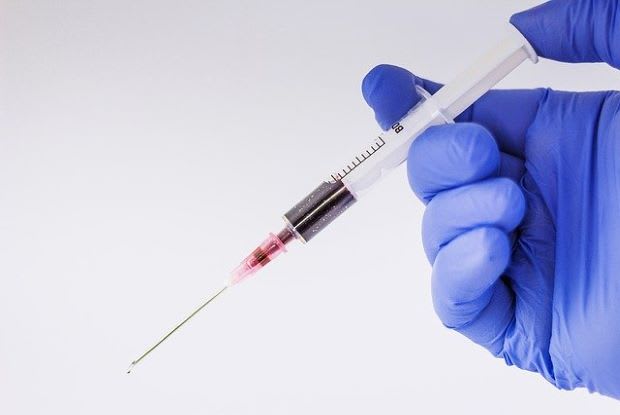Table of Contents
What does the Thyroid Do?
The thyroid is a small but important gland located in the front of the neck. The thyroid lies along the front of the windpipe and has two lobes connected by a bridge. If your thyroid is not enlarged, you cannot feel the gland.
The thyroid is responsible for several functions that keep the body working properly. Thyroxine, also known as T4, is the main hormone that is secreted by the thyroid. Thyroid hormones circulate throughout the body and influence metabolism, growth, development, and body temperature.
Several complications can occur if the thyroid produces excess or not enough hormone. Hyperthyroidism occurs when too much hormone is excreted by the thyroid and hypothyroidism is characterized by a lack of thyroid hormone.
You will likely experience several unpleasant symptoms if there is a problem with your thyroid. To treat the symptoms of a thyroid disorder, your doctor may prescribe desiccated thyroid or Synthroid (levothyroxine) to combat hypothyroidism. If there is too much thyroid hormone in the body, Tapazole (methimazole) may be used to bring your T4 levels down to normal. Read on to learn more about the thyroid and symptoms that may occur. [1] You may have hyperthyroidism if your thyroid produces too much thyroxine (T4) and triiodothyronine (T3). This condition can accelerate the body’s metabolism and cause an irregular heartbeat. Hyperthyroidism is not a deadly condition but can become serious if left untreated. Common symptoms of hyperthyroidism can include: If your thyroid produces too much T4, you may be experiencing Grave’s disease or thyroiditis. Grave’s disease is an autoimmune disorder that stimulates the thyroid. Thyroiditis occurs for unknown reasons and causes inflammation of the thyroid. Similarly, too much T4 can lead to thyroid nodules. [2] Goiters are the most noticeable symptom of a thyroid problem. When the thyroid becomes enlarged, a goiter may occur. Goiters are usually painless and may make it difficult to swallow. This enlarged gland may be caused by too much or too little thyroid hormone. A lack of iodine in the diet is another major cause of goiters. The widespread use of iodized salt in the United States has significantly decreased the rate of iodine-related goiters. Today, goiters are more often due to thyroid hormone abnormalities. Not all goiters cause noticeable symptoms, but you may want to look out for: You are at an increased risk for goiters if you are diagnosed with a thyroid disorder like Grave’s disease (hyperthyroidism) or Hashimoto’s disease (hypothyroidism). If your thyroid produces too little thyroid hormone, your pituitary gland may stimulate the thyroid, causing it to enlarge. It is essential to get your goiter checked out to ensure it is not indicative of a serious issue like thyroid cancer. [3] When the thyroid gland cannot make enough thyroid hormones, the gland will not function well. If the thyroid is not working properly, it can affect every aspect of the body’s metabolism. Hashimoto’s disease, or Hashimoto’s thyroiditis, is the most common form of hypothyroidism. There is no cure for this disorder, but medications can help regulate your thyroid levels and allow you to live a normal life. [4] Symptoms of hypothyroidism are quite different than those of hyperthyroidism. You may want to contact your doctor if you experience the following symptoms: These symptoms can signify several different conditions, so many people leave hypothyroidism undiagnosed for a long time. If you have the later symptoms of an underactive thyroid, you may exhibit a puffy-looking face, thinning eyebrows, slow heart rate, hearing loss, and a low-pitched voice. [5] Like many medical disorders, a family history of thyroid problems increases your risk of developing hyper or hypothyroidism. If you experience unusual symptoms, your doctor will perform a physical exam to see if thyroid problems are to blame. Your doctor will check for hyperthyroidism by seeing if you have a tremor in your fingers, overactive reflexes, eye changes, and moist skin. Your neck may also be examined to check for the presence of an enlarged prostate or goiter. Blood samples may be taken to detect the levels of thyroxine and thyroid-stimulating hormone in your system. The amount of thyroid-stimulating hormone (TSH) can confirm the presence of hyperthyroidism. You may also get a thyroid scan or ultrasound to detect any nodules on the gland. [2] Thyroid problems can significantly affect a person’s quality of life, so it is important to get a proper treatment plan. Your treatment depends on your age, physical condition, and the cause of your thyroid problem. If you have hypothyroidism, you may need to use a synthetic thyroid hormone like Synthroid daily. This drug restores normal hormone levels and reverses symptoms of hypothyroidism. If you experienced weight gain or increased cholesterol levels because of hypothyroidism, you should notice a change in your weight and cholesterol once you begin taking Synthroid. [4] Hyperthyroidism can be more difficult to treat and may require more intense treatment. Your doctor may recommend radioactive iodine taken orally that will make your gland shrink. In other cases, your doctor may prescribe Tapazole to prevent the thyroid from producing excess hormones. If your body does not tolerate anti-thyroid drugs or radioactive iodine therapy, you may need a thyroidectomy. As the name suggests, a thyroidectomy involves removing the thyroid gland. If the thyroid gland is removed, the patient will need lifelong Synthroid (levothyroxine) doses to provide the body with an adequate amount of thyroid hormones. [2] The content in this article is intended for informational purposes only. This website does not provide medical advice. In all circumstances, you should always seek the advice of your physician and/or other qualified health professionals(s) for drug, medical condition, or treatment advice. The content provided on this website is not a substitute for professional medical advice, diagnosis, or treatment.
Hyperthyroidism
What is a Goiter?

Hypothyroidism
Diagnosing Thyroid Issues

Treatment Options
